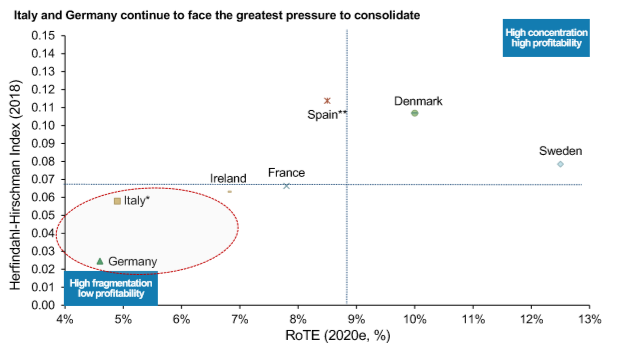The ECB, government leaders and the banking sector must act immediately to stop the financial panic caused by the coronavirus.
A recession can still be avoided.
Banks should provide bridge loans to businesses suffering from the corona shock.
The ECB should do a TLTRO-like operation, providing cheap funding proportional to banks’ SME/corporate credit portfolios. Make the terms of the ECB loans conditional on coronavirus metrics. For example: banks should repay 4 months after the last new COVID-19 case is detected in the EU.
If Europe’s leaders fail to act decisively, the financial costs will snowball.

